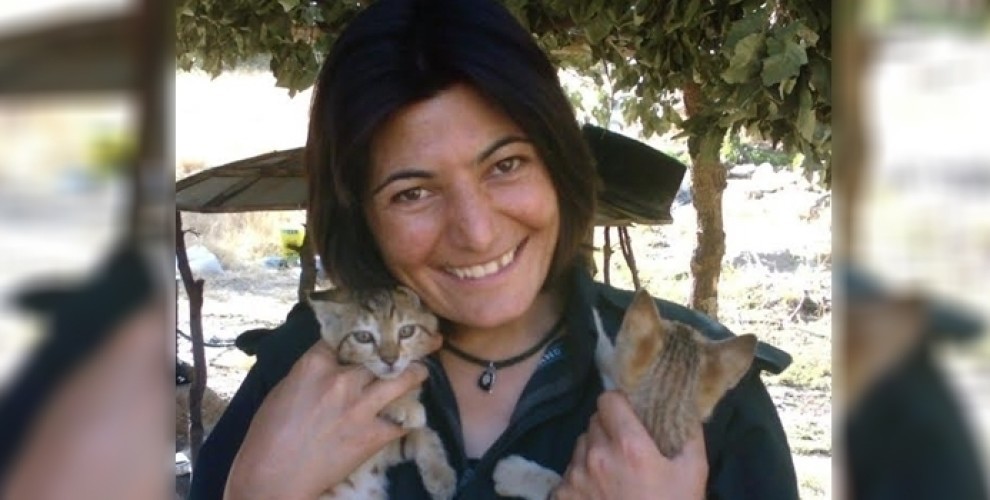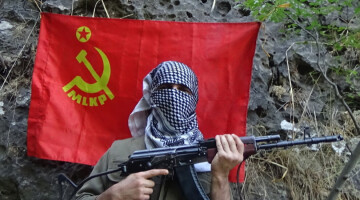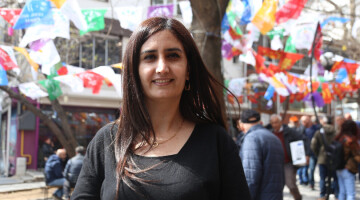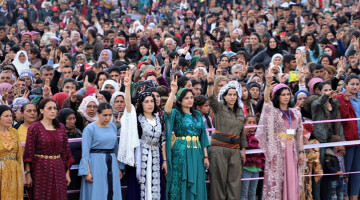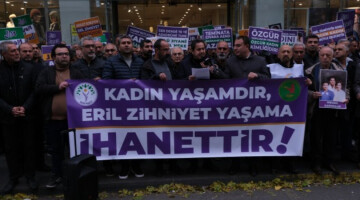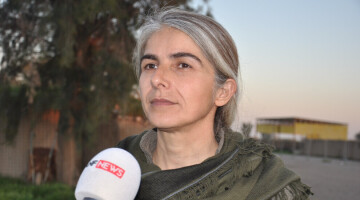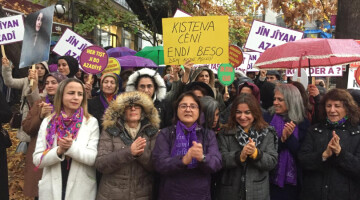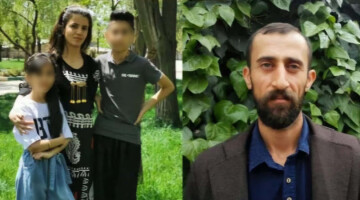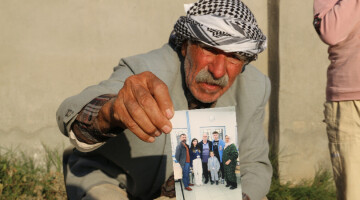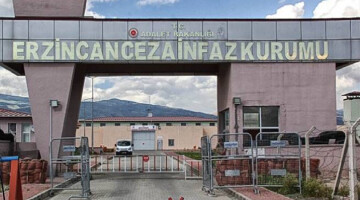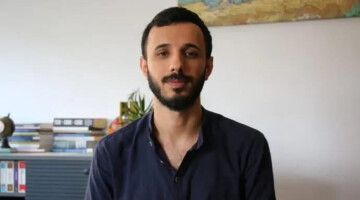Iranian Kurdish woman Zeynab Jalalian, serving a life sentence, is severely ill and requires specialized medical care outside prison. However, the authorities have persistently refused to transfer her to a hospital, apparently to punish her and extract forced “confessions”. In protest, she has been refusing all medications since March 2017. The denial of access to medical care in these circumstances amounts to torture.
Severely-ill Iranian Kurdish prisoner Zeynab Jalalian, 35, who is serving a life sentence in Khoy prison, West Azerbaijan Province after a grossly unfair trial, has been refusing all medications since March 2017 in protest at the authorities’ refusal to provide her with adequate medical care; their false claims to the UN that she is in perfect health and receives regular medical care; and their tampering with her medical records making it appear that she undergoes weekly check-ups. Zeynab Jalalian is at risk of losing her eyesight in prison as she is being denied specialized medical care for a worsening eye condition. She suffers from a serious case of pterygium, a wing- shaped growth of tissue that starts on the white of the eye and spreads across the cornea if left untreated. Since 2014, doctors have recommended surgery to remove the pterygium on her eyes, as it is impairing her vision and causing her severe discomfort. However, the authorities have refused to transfer her to a hospital outside prison to receive the surgery, and have only given her eye drops, which do not treat her condition.
Zeynab Jalalian also suffers from heart problems, intestinal and kidney complications, and an oral thrush condition that has caused painful white bumps on her tongue and interferes with her ability to eat and swallow. Since around March 2017, the right side of her body has gone also numb and the reason remains unknown as she has not received any diagnostic tests. According to her lawyer, over the past two years, she has repeatedly asked the prison authorities to take her to a hospital outside prison for specialized testing and treatment for these health problems but the authorities have ignored her requests. Some of her requests have been rejected outright while others have been accepted on condition that she makes videotaped “confessions”.
Zeynab Jalalian was arrested in March 2008 for her social and political activities with the political wing of the Party for Free Life of Kurdistan (PJAK), which aimed at the empowerment of women belonging to Iran’s Kurdish minority and Kurdish self- determination
Zeynab Jalalian was held in solitary confinement for eight months without access to a lawyer. She said that during this period, intelligence officials tortured her including through flogging the soles of her feet, punching her in the stomach, hitting her head against a wall, and threatening her with rape. She was sentenced to death in early 2009 on the charge of “enmity against God” (moharebeh).
Jalalian’s trial was grossly unfair and lasted no more than a few minutes. Branch One of the Revolutionary Court in Kermanshah Province claimed that she had “taken up arms against the state” despite the absence of any evidence linking her to the armed activities of PJAK. Noting her “alleged membership in the political wing of PJAK” and her movement between Iran and Iraq, the court reasoned that “she may have been indeed involved in terrorist operations but is refraining from telling the truth.”
This is a violation of the right to presumption of innocence, which requires that everyone charged with a criminal offence is presumed and treated as innocent until and unless a court has judged after a fair trial that the charge has been proved beyond reasonable doubt by the prosecution. Zeynab Jalalian’s lawyer, whom she had only been allowed to appoint a few weeks prior to the trial, was denied the opportunity to represent her at the trial as he had not been informed of the date for which it had been scheduled. Her death sentence was upheld on appeal in May 2009 but was commuted to life imprisonment in December 2011 after she was granted clemency by Iran’s Supreme Leader.
In April 2016, the UN Working Group on Arbitrary Detention called on Iran to release Zeynab Jalalian immediately as she had been detained only for peacefully exercising her rights to freedoms of expression and association through “her activities as a social and political activist for the rights of Kurdish women” and “her involvement in political activism... with the non-militant wing of the PJAK”. The Working Group stated that she had been denied the right to a fair trial and that her treatment violated the prohibition of torture and other cruel, inhuman or degrading treatment or punishment. The refusal of authorities to provide prisoners with medical care constitutes torture if such deprivation is intentional and inflicts “severe pain or suffering” for such purposes as punishment, coercion or intimidation, obtaining a “confession”, or for any reason based on discrimination of any kind.
Amnesty International launched the following campaign in order for the Kurdish woman to receive immediate medical care;
Please write immediately in Persian, English, Arabic or your own language:
- Immediately provide Zeynab Jalalian with the specialized medical care she needs outside prison, including eye surgery, and protect her from further torture and other ill-treatment, including through the denial of adequate medical care;
- Implement the recommendation of the UN Working Group on Arbitrary Detention, which calls for Zeynab Jalalian to be released immediately and accorded an enforceable right to compensation;
- Order a prompt, independent and impartial investigation into her allegations of torture and other ill-treatment, bringing to justice anyone found responsible, including those with superior responsibility, in fair trials and without recourse to the death penalty.
PLEASE SEND APPEALS TO:
Prosecutor General of Iran
Mohammad Jafar Montazeri
Office of the Prosecutor General of Iran
Khayyam Street (opposite Behesht
Street), Tehran, Iran
[email protected]
Salutation: Your Excellency
***
Head of the Judiciary
Ayatollah Sadegh Larijani
Number 4, Deadend of 1 Azizi
Above Pastour Intersection
Vali Asr Street, Tehran, Iran
Salutation: Your Excellency
***
And copies to:
Permanent Representative to the UN in Geneva
Mohsen Naziri Asl
Chemin du Petit-Saconnex 28
1209 Geneva, Switzerland

